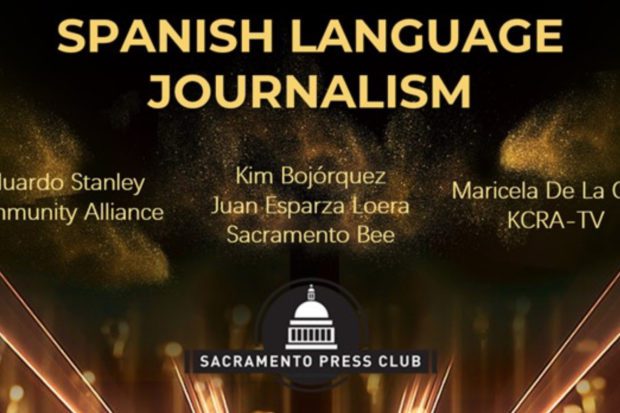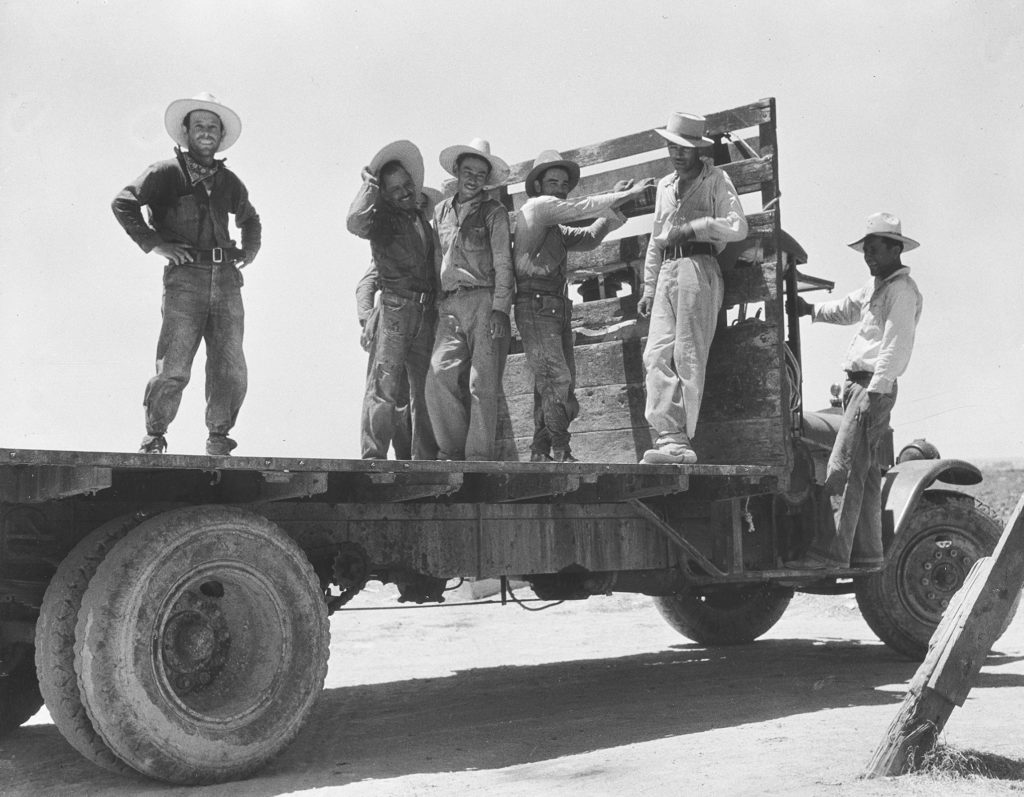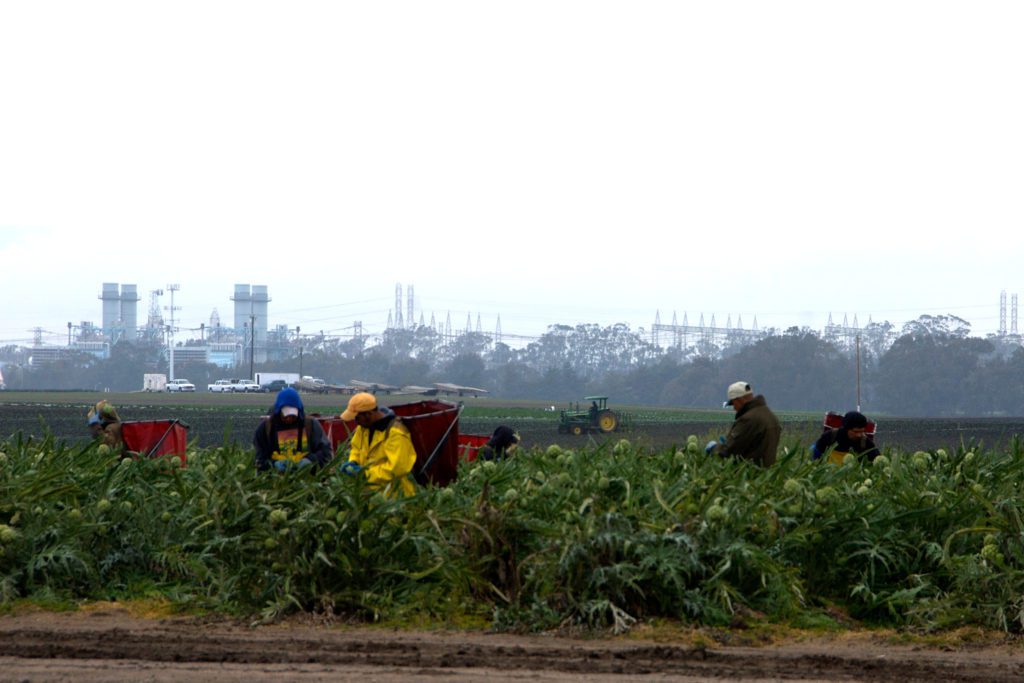

One of the most important jobs a journalist has is to share the stories of the unheard. Community Alliance Editor Eduardo Stanley has spent his journalistic career (of more than 25 years) covering important issues that affect communities in the Central Valley, including immigrant residents.
Earlier this year, the Sacramento Press Club (SPC) awarded Stanley for his two-part story on aging undocumented farmworkers facing health and economic challenges as a result of their legal status. The SPC recognizes journalistic excellence throughout the state, and Stanley was awarded in the Spanish Language Journalism category.
“Eduardo Stanley made good use of detail and personal experiences in his description of elderly immigrant workers and brought to life the challenges facing a population that doesn’t get enough attention,” noted the SPC.
The first of the two-part series, “Farmworkers Work Hard: How Do They Age?,” was published in July 2021. In it, Stanley addresses the various health problems and risks that arise from years of physically strenuous field labor.
From heat stroke to chronic arthritis, aging workers cannot afford going to the doctor. After a lifetime of working in the United States, many move back to their hometown. The life expectancy for a farmworker is 49 years old, a mindblowing number considering the Centers for Disease Control put the average life expectancy in the United States at 77.
In the second part of the series, “Aging Farmworkers Never Retire,” published in December 2021, Stanley focuses on 85-year-old Manuel Moises, who faces health issues and, like many immigrants, turns to curanderos and alternative medicine because of the high cost of healthcare in this country.
Without being able to receive help from programs such as Medicare, undocumented immigrants simply cannot afford the medical treatment they require. Moises’ aging body can no longer handle the backbreaking fieldwork leaving him to depend on his children to take care of him.
Without retirement, elderly immigrants are left with two options: depend on their family for survival or return to their hometown.
This is the harsh reality for most immigrants. The IRS estimates 50%–75% of undocumented immigrants pay income taxes. Many don’t realize that undocumented immigrants pay taxes and even recieve an Individual Taxpayer Identification Number (ITIN) from the Internal Revenue Service to facilitate tax processing instead of a Social Security number.
In the series, Stanley refers to elders who return home and live out their days in poverty. Having earned barely enough to afford to live in this country, they leave with nothing to show for their years of hard work.
The author interviewed a woman whose father, Cristobal, had this exact fate. Cristobal illegally worked in the United States for more than 30 years with a friend’s Social Security number. During his years here, he suffered a few accidents while working, such as falling from ladders and getting cut.
A few years ago, someone reported him, leading to his deportation. At the age of 76, Cristobal lives in complete poverty back in Nayarit, Mexico. He had no life savings and his complicated relationship with his children has left him with no economic support.
As he worked most of his life in the United States, he was unable to receive retirement benefits in either country. Even if he had a better relationship with his children, he will never be able to see them again. He cannot legally come back into the United States and is far too old to attempt crossing illegally. His daughters and sons all live here undocumented and cannot risk getting caught crossing back and forth.
Stanley’s series shed light on a topic that is often ignored. Immigrants spend their lives working hard, just for others to reap the benefits. Undocumented immigrants pay billions of dollars in income, excise and property taxes, only to be left without help or resources in the last years of their lives.

Immigrants are afraid to share their stories as they fear that too much attention would raise the likelihood of being deported. Stanley struggled to find doctors or research on the health and economic complications undocumented workers face as they age. There is little information on the topic. Articles like his could draw more attention to this phenomenon and possible ways to help the undocumented elderly.
Mike Rhodes, executive director and co-founder of the Community Alliance newspaper, praised Stanley for his hard work and giving attention to this subject.
“Community Alliance writers do a fantastic job and their stories have won several awards, but I’m particularly pleased that our editor, Eduardo Stanley, is getting the recognition he deserves. It is a huge honor to receive the first prize for Spanish journalism from the Sacramento Press Club. We celebrate this achievement with Eduardo.
“The Community Alliance newspaper has had a profound impact on our community. We have had stories in this newspaper that have led to policy changes at both the local and state level.
“For example, we helped stop the City of Fresno from violating homeless people’s human rights, we were an important factor in stopping the Fresno County Jail from abusing inmates and an article about sheepherders in Fresno County resulted in legislation at the State Capitol that improved their lives.”
The Community Alliance is one of the few publications in the Central Valley that posts content in English and Spanish, attempting to reach parts of our community who prefer accessing information in their native language.
“We want to reach more people who are interested in reading our Spanish-language section,” says Rhodes. “Our goal is to reach more rural areas where many people read the news in Spanish.
“There are few options where monolingual Spanish readers can get reliable information. This is one of our first priorities, and now that we have established a nonprofit 501(c)(3), we are starting to get funding to do just that. The need is great, and we are looking forward to the challenge of reaching that important demographic.”
